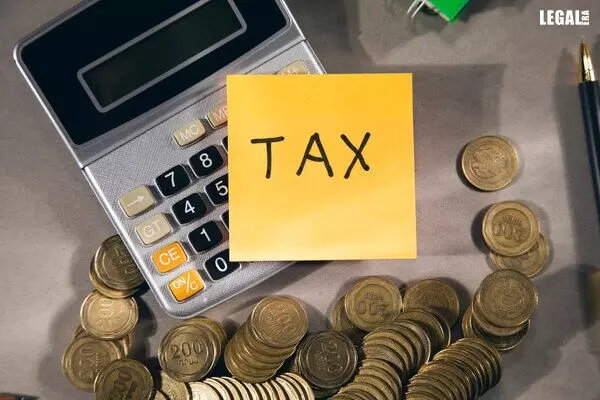- Home
- News
- Articles+
- Aerospace
- Artificial Intelligence
- Agriculture
- Alternate Dispute Resolution
- Arbitration & Mediation
- Banking and Finance
- Bankruptcy
- Book Review
- Bribery & Corruption
- Commercial Litigation
- Competition Law
- Conference Reports
- Consumer Products
- Contract
- Corporate Governance
- Corporate Law
- Covid-19
- Cryptocurrency
- Cybersecurity
- Data Protection
- Defence
- Digital Economy
- E-commerce
- Employment Law
- Energy and Natural Resources
- Entertainment and Sports Law
- Environmental Law
- Environmental, Social, and Governance
- Foreign Direct Investment
- Food and Beverage
- Gaming
- Health Care
- IBC Diaries
- In Focus
- Inclusion & Diversity
- Insurance Law
- Intellectual Property
- International Law
- IP & Tech Era
- Know the Law
- Labour Laws
- Law & Policy and Regulation
- Litigation
- Litigation Funding
- Manufacturing
- Mergers & Acquisitions
- NFTs
- Privacy
- Private Equity
- Project Finance
- Real Estate
- Risk and Compliance
- Student Corner
- Take On Board
- Tax
- Technology Media and Telecom
- Tributes
- Viewpoint
- Zoom In
- Law Firms
- In-House
- Rankings
- E-Magazine
- Legal Era TV
- Events
- Middle East
- Africa
- News
- Articles
- Aerospace
- Artificial Intelligence
- Agriculture
- Alternate Dispute Resolution
- Arbitration & Mediation
- Banking and Finance
- Bankruptcy
- Book Review
- Bribery & Corruption
- Commercial Litigation
- Competition Law
- Conference Reports
- Consumer Products
- Contract
- Corporate Governance
- Corporate Law
- Covid-19
- Cryptocurrency
- Cybersecurity
- Data Protection
- Defence
- Digital Economy
- E-commerce
- Employment Law
- Energy and Natural Resources
- Entertainment and Sports Law
- Environmental Law
- Environmental, Social, and Governance
- Foreign Direct Investment
- Food and Beverage
- Gaming
- Health Care
- IBC Diaries
- In Focus
- Inclusion & Diversity
- Insurance Law
- Intellectual Property
- International Law
- IP & Tech Era
- Know the Law
- Labour Laws
- Law & Policy and Regulation
- Litigation
- Litigation Funding
- Manufacturing
- Mergers & Acquisitions
- NFTs
- Privacy
- Private Equity
- Project Finance
- Real Estate
- Risk and Compliance
- Student Corner
- Take On Board
- Tax
- Technology Media and Telecom
- Tributes
- Viewpoint
- Zoom In
- Law Firms
- In-House
- Rankings
- E-Magazine
- Legal Era TV
- Events
- Middle East
- Africa
Kerala High Court Upholds Penalty for Late Deposit of Collected Tax

Kerala High Court Upholds Penalty for Late Deposit of Collected Tax
The Kerala High Court has ruled that a penalty is payable if the tax collected is not deposited within 30 days of the due date of the tax payment.
Justice Dinesh Kumar Singh noted that Sub-sections 6, 8, and 9 of Section 73 of the GST Act, 2017 state that if a person who is liable to pay tax fails to deposit the tax collected within 30 days of the due date, then Sub-section 8 will not apply and that person must pay a penalty.
The petitioner, or assessee, paid all taxes within 30 days of receiving the notice. The notice was dated February 28, 2022, and the petitioner paid the tax on March 10, 2022.
The assessee relied on Section 73(8) of the GST Act, 2017, which states that if a person liable to pay tax under Section 73(1) or (3) pays the tax and interest within 30 days of receiving the notice, no penalty will be payable and all proceedings in respect of the notice will be closed.
The department argued that Sub-section 8 of Section 73 applies when an assessee has not paid the tax on transactions. But when an assessee has collected tax from others and not deposited it with the government, Sub-section 11 of Section 73 applies. Sub-section 11 starts with a “notwithstanding” clause, which means that even though Sub-sections 6 and 8 say something different, a penalty under Sub-section 9 will be payable if any self-assessed tax or collected tax is not paid within 30 days of the due date.
The question was whether an assessee who had paid the tax and interest within 30 days of receiving the notice would be liable for a penalty.
The Court dismissed the petition, stating that the assessing authority had made the correct decision and that there was no legal error that required the Court to intervene.



